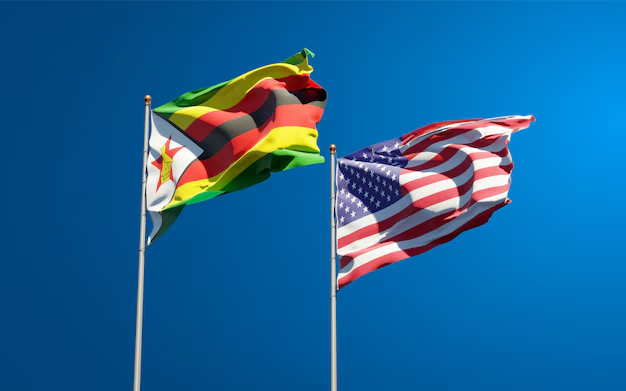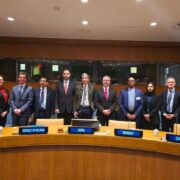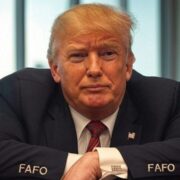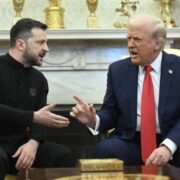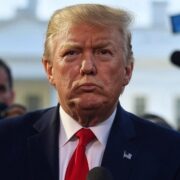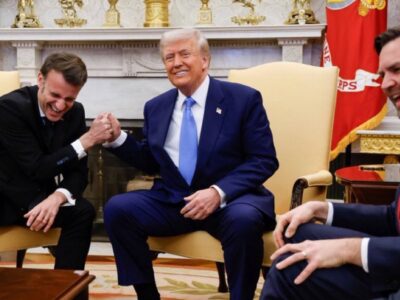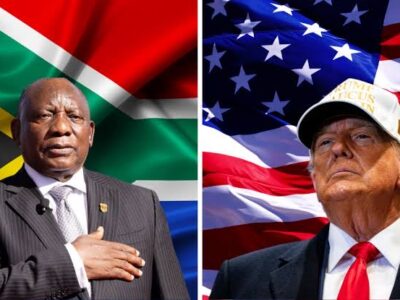By Abel Mavura
Zimbabwe’s recent decision to suspend tariffs on imports from the United States has ignited a fierce debate among economists, policymakers, and citizens, with opinions split on whether the move represents a shrewd diplomatic play or a risky economic misstep. Announced by President Emmerson Mnangagwa as a goodwill gesture toward the administration of U.S. President Donald Trump, the policy aims to foster improved bilateral relations and boost trade. However, its implications for Zimbabwe’s fragile economy and its relationships with other major trading partners remain under intense scrutiny.
A Boost for U.S. Exports?
The tariff suspension could significantly lower the cost of American imports, potentially increasing U.S. exports to Zimbabwe from their current modest level of approximately $47 million in 2024, according to U.S. government data. Goods such as machinery, vehicles, and vegetable oils among Zimbabwe’s notable imports from the U.S. may become more competitive compared to those from other trading partners like South Africa, China, the European Union, Japan, Russia, and Belarus. This shift has raised concerns among observers who question whether Zimbabwe’s traditional allies will tolerate the U.S. gaining a trade advantage.
“Some imports from South Africa, China, and the EU may now be sourced from the USA,” noted a local trade analyst. “Our friends won’t be happy, and I doubt they’ll stand idle while we tilt the playing field.” Retaliatory measures from these countries could complicate Zimbabwe’s trade landscape further.
Local Industry at Risk
Critics warn that the policy could expose Zimbabwe’s struggling local industries to heightened competition from American companies. With a cultural preference for U.S. brands often seen as symbols of quality due to what some call “mental colonization” sectors like manufacturing and agriculture might suffer. Vegetable oils, a key import from the U.S., could undercut local producers already grappling with economic challenges.
“If Trump maintains his 18% tariff on our exports, our trade deficit with the U.S. will widen significantly,” argued an economist based in Harare. “Even if the tariff is removed, our exports hovering around $43 million won’t see meaningful growth. This won’t create jobs here; it might just create American ones.”
Strategic Diplomacy or Naive Bootlicking?
Supporters of the move frame it as a pragmatic step toward building bridges with a global superpower. “Our economy is too small and fragile to play hardball in global trade,” said a proponent of the policy. “Even if the U.S. doesn’t reciprocate immediately, opening our market to them is calculated engagement. We need relationships with everyone China, Russia, and the USA.”
The gesture has also been interpreted as an attempt to appeal to Trump’s ego, potentially softening his stance on Zimbabwe. “Stroking Trump’s ego a bit doesn’t hurt if it leads to more attention, investment, or even eligibility for AGOA,” the supporter added, referring to the African Growth and Opportunity Act, which offers duty-free access to U.S. markets for eligible African nations. Zimbabwe’s exclusion from AGOA, alongside lingering sanctions and limited support from Bretton Woods institutions like the IMF and World Bank, has long hampered its agricultural export potential.
Reflecting on this, I recall insights from my Master’s in International Development and Advanced Global Studies at Sciences Po Paris School of International Affairs. Professor James Bond, in his course The Architecture of International Development Finance, argued that “small economies often leverage asymmetric trade policies to gain favor with larger powers, but the risk lies in over-reliance on goodwill that may not be reciprocated.” Similarly, Professor Julia Cagé, teaching Development Economics: Macroeconomic and Political Economic Issues, cautioned that “preferential trade agreements with distant partners can destabilize local industries if not paired with robust domestic support.” Their perspectives shed light on the high stakes of Zimbabwe’s current strategy.
Consumer Benefits vs. Decolonization Debate
For ordinary Zimbabweans, the suspension promises cheaper access to coveted American goods, from clothing brands like Nike and Jordan to gadgets and machinery. “This is good for us consumers who prefer American-made products,” said a Harare resident. “I hope Trump succeeds in bringing production back to the U.S. from places like China and Vietnam.”
Yet this enthusiasm has drawn accusations of undermining Zimbabwe’s decolonization agenda. “There’s an embarrassing bootlicker connotation here,” remarked a commentator. “We’re supposed to be breaking free from Western dominance, not handing them our market on a platter.”
The Bigger Picture: Trade Partners and Deficits
The policy raises broader questions about Zimbabwe’s trade strategy. South Africa and China dominate as the country’s major trading partners, with the U.S. playing a relatively minor role. In 2024, U.S.-Zimbabwe trade totaled just $111.6 million, with Zimbabwe exporting $67.8 million mainly ferroalloys, tobacco, and sugar and importing $43.8 million. This resulted in a trade surplus for Zimbabwe, not a deficit driven by tariffs, suggesting the U.S. may not view Zimbabwe as a priority market.
“How many American businesses are even selling here?” asked a local entrepreneur. “Our deficit with them isn’t about tariffs it’s about them not seeing us as a market worth targeting.”
Others argue that suspending tariffs on imports from China, South Africa, or the UAE countries with deeper economic ties to Zimbabwe might yield greater benefits. “The U.S. isn’t our major trading partner,” said a trade observer. “This feels like a symbolic move more than an economic one.”
As Zimbabwe navigates this bold policy shift, its success hinges on whether the U.S. reciprocates and whether local industries can withstand the influx of American competition. Eligibility for AGOA, sanction relief, and support from international financial institutions could amplify the benefits, particularly for agricultural exports. But without these, the tariff suspension risks being a one-sided concession.
For now, the move underscores Zimbabwe’s delicate balancing act in a polarized global trade environment. Whether it proves to be a masterstroke of strategic diplomacy or a costly miscalculation remains to be seen. As one analyst put it, “Politics is about playing the long game but we need to make sure we’re not the only ones playing.”


